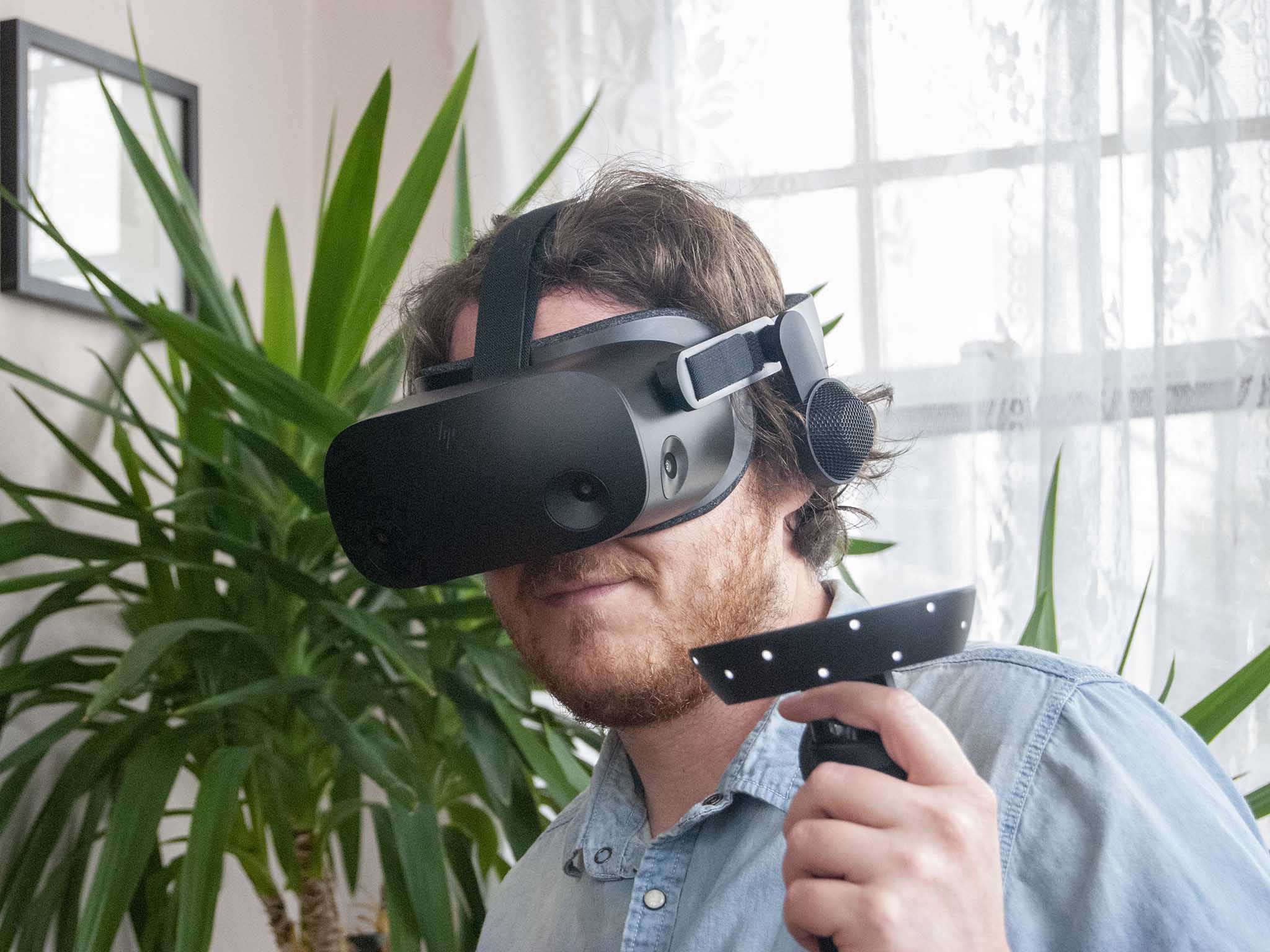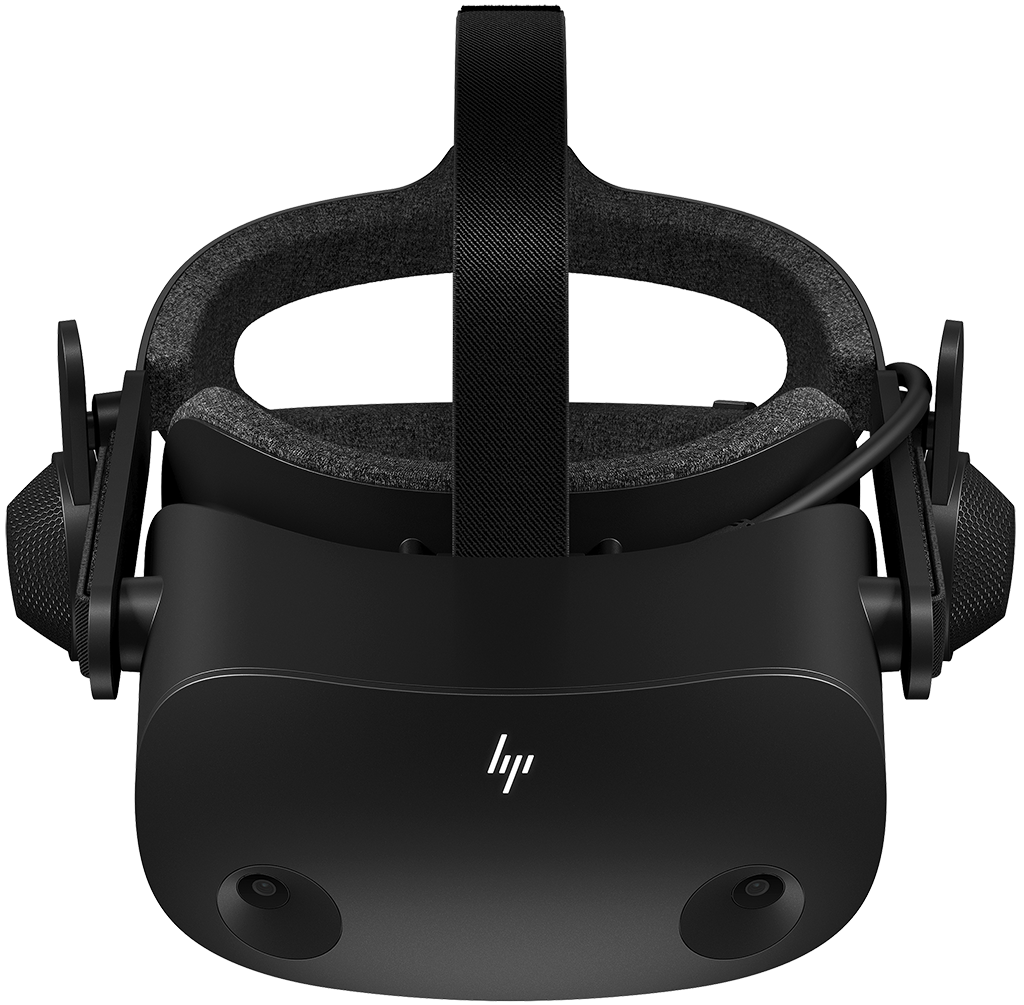HP's Reverb G2 Omnicept Edition adds more sensors to one of the best VR headsets
HP's new headset can track your eyes, muscles, and heart rate to help with training and immersion.

All the latest news, reviews, and guides for Windows and Xbox diehards.
You are now subscribed
Your newsletter sign-up was successful
What you need to know
- The HP Reverb G2 Omnicept Edition headset will launch in May with a starting price of $1,249.
- HP announced that the headset will also support HP VR Spatial Audio.
- Developers will be able to download the HP Omnicept SDK in May.
The HP Reverb G2 is already one of the best VR headsets. Soon, a new edition of the HP Reverb G2 will take everything great about the headset and add support for HP Omnicept. The upcoming HP Reverb G2 Omnicept Edition includes a comprehensive sensor system that measures muscle movement, gaze, pupil size, and heart rate.
HP initially announced the HP Reverb G2 Omnicept Edition in September 2020, but at the time, we didn't have pricing or availability details. The headset will be available starting at $1,249 on HP's website in May. Also in May, HP will make the HP Omnicept Solution SDK available for developers, allowing them to design experiences that fully utilize the new headset.
In addition to pricing information, HP announced that it is adding support for HP VR Spatial Audio to the HP Omnicept SDK. HP VR Spatial Audio uses dynamic head-related-transfer-functions (HRTFs) to create a life-like experience and personalized sound. With the feature, audio can adapt to a specific person within virtual reality. The feature works with both Unity and Unreal Engine.
HP Omnicept allows developers to create "hyper-personalized, engaging, and adaptive VR experiences for enterprises," according to HP. The sensors within the headset can measure people's responses, allowing developers to create adaptive experiences within virtual reality. These can be used for training, such as placing people in simulations of high-risk environments to measure people's responses.
HP's website for the new headset and the HP Omnicept technology outlines three key areas in which the headset can enhance applications:
TrainingBuild apps that measure a user's cognitive load - giving businesses a better understanding of the trainee's performance and ability to make decisions. Now, you can deliver experiences that better prepare teams to help deal with high-risk situations.WellbeingYour applications can take advantage of real-time insights to improve wellbeing. Embrace VR technology and provide experiences that help reduce stress, improve comfort and assist breakthroughs.Creation & CollaborationBuild experiences that maximize productivity and reduce development time. With integrated sensors, your app can track user engagement and assess user responses at any moment. And, with the face camera you can deliver avatars that display authentic facial expressions.
Windows Mixed Reality headsets are used by engineers, medical staff, and the US military. While many of the well-known cases of Windows Mixed Reality being used are on Microsoft's own HoloLens, Microsoft is also building a platform. Our executive editor Daniel Rubino recently wrote about how Microsoft's efforts in the mixed reality space are bearing fruit.
It's not just about selling headsets, however. Microsoft is now doing the less exciting work of building the MR framework for the future. Its cross-platform dev tools (Azure spatial anchors, remote rendering, object anchors, Mesh) are building the groundwork so MR is more than fancy hardware. Inventing HoloLens is one thing, but making the dev tools and the entire platform is another.
While the HP Reverb G2 Omnicept can be used in a variety of training environments, it's also a SteamVR headset. Our Cale Hunt breaks down the non-Omnicept Edition of the headset in his HP Reverb G2 review.
All the latest news, reviews, and guides for Windows and Xbox diehards.

Sean Endicott is a news writer and apps editor for Windows Central with 11+ years of experience. A Nottingham Trent journalism graduate, Sean has covered the industry’s arc from the Lumia era to the launch of Windows 11 and generative AI. Having started at Thrifter, he uses his expertise in price tracking to help readers find genuine hardware value.
Beyond tech news, Sean is a UK sports media pioneer. In 2017, he became one of the first to stream via smartphone and is an expert in AP Capture systems. A tech-forward coach, he was named 2024 BAFA Youth Coach of the Year. He is focused on using technology—from AI to Clipchamp—to gain a practical edge.

